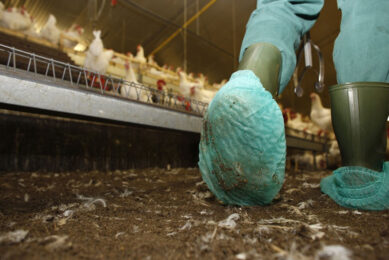Retailers launch plan to stem campylobacter in poultry
Retailers are behind a core part of the Food Standards Agency’s (FSA’s) latest five-year strategy of targeting the UK’s biggest source of foodborne illness. They have come up with a plan to work with their suppliers to substantially reduce levels of campylobacter bacteria in poultry meat.
While the food safety aspects of the FSA’s strategy will remain intact, much of the rest will have to be ditched since the government stripped the Agency of its responsibilities for nutrition and country of origin labelling in England.
Launching tackling campylobacter a commitment across the supply chain, the British Retail Consortium (BRC) and British Poultry Council (BPC) have demonstrated their commitment to finding effective solutions to tackling this bacteria. Chickens tend to pick up campylobacter on farms, but it can be controlled by improved biosecurity, good food processing hygiene and thorough cooking. According to the FSA, campylobacter causes over 300,000 cases of food poisoning a year, costing more than £583M.
Measures are underway, including working with producers to review on-farm biosecurity and rolling out leak-proof packaging across poultry ranges in shops. Longer-term targeted trials are also being conducted.
The BRC and BPC have established a joint working group, comprising the food industry, FSA and the Department for Environment, Food and Rural Affairs, whose remit is to scrutinise potential controls.
Where the group finds effective methods for reducing campylobacter that customers accept, but are ruled out by EU regulation, a case will be put forward for amendments to allow their use in the UK.
BPC chief executive Peter Bradnock said: “This co-ordinated whole food chain approach to tackling campylobacter is already showing benefits in standardised testing and sharing technical information across the working group members.”
Food Manufacture is holding a
conference in London on October 5 covering ‘Emerging food safety issues’.
Join 31,000+ subscribers
Subscribe to our newsletter to stay updated about all the need-to-know content in the poultry sector, three times a week.












